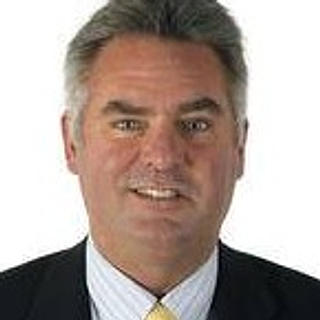Oct. 13, 1977 – The Bronx Zoo moves West
- Sal Maiorana
- Oct 13, 2017
- 4 min read

LOS ANGELES – There wasn’t a whole lot for the Yankees to feel good about as they flew out west and began preparations for Game 3 of the World Series. Their three left-handed power hitters – Reggie Jackson, Chris Chambliss and Graig Nettles – were now a combined 9-for-74 (.121 average) in the postseason, and their lefty-swinging leadoff catalyst, Mickey Rivers, was now 0-for-10 in the World Series.
And up next for the Dodgers was lefty Tommy John, the 20-game winner and eventual National League Cy Young Award runner-up who was pitching with what some referred to as a bionic arm after undergoing a revolutionary surgery in 1975 that would later be named in his honor.
Billy Martin recognized this conundrum, but when he was asked if he was considering any changes to his lineup, he confided that he wasn’t. And when Jackson’s name came up, given that Martin had benched him in Game 5 of the ALCS with lefty Paul Splitorff starting for the Royals, Martin said, “I’m not taking Reggie out. Reggie’s in there. Splitorff isn’t pitching for them.”
This, of course, wasn’t good enough for Jackson, who was offended that Martin still believed he couldn’t hit Splitorff, even though he’d gone 2-for-15 against him in 1977.
“I don’t care what he says, I don’t need to take that from anybody, especially from him,” said Jackson, who was 3-for-22 thus far in the playoffs. “I know what I can do. If he did, we might be better off.”

This was part of yet another testy exchange between the two lightning rods for turmoil on the off day leading up to Game 3 at Dodger Stadium. Martin was pissed that Jackson had made remarks questioning why the manager started clearly rusty Catfish Hunter in Game 2.
“Why do we have to have all this kind of talk now when we’re trying to win the World Series?” said a perturbed Martin. “It’s not the proper type of team spirit. It’s not the Yankee kind of thing to do (that was almost laughable given how the season had played out).
“A true Yankee wouldn’t say that,” Martin continued. “Play your position, do your job, and if you can’t do your job, shut up. He’s got enough trouble playing right field without second-guessing the manager. His job is to play right field and to hit, and he’s getting paid a lot to that. My job is to manage, and I’m not getting paid a lot to do that. He’s a man of moods, and it’s too bad he is. He’s putting pressure on himself; he’d better get two hits tomorrow. His teammates aren’t paying any attention to him, why should I? He says things that hurt the ballclub.”
Jackson half-heartedly admitted that he probably shouldn’t have spoken about using Hunter the way Martin did. “Maybe I said something I shouldn’t have said that was taken the wrong way.”

The drama surrounding this team was astonishing. There was a light moment late in the day after the Yankees had finished working out. Lou Piniella was complaining about the poor seating location in Dodger Stadium for the Yankees’ families, and Martin heard him from his office, stepped out and said, “Say something (controversial), Lou. Take the heat off Reggie and me.”
To be expected, the mood was far more cheery in the other clubhouse. The Dodgers had earned their split in New York and now they were back in their home surroundings where their right-handed power hitters – Steve Garvey, Ron Cey, Reggie Smith (switch-hitter) and Dusty Baker – were so comfortable. Playing in Dodger Stadium had helped them become the first foursome on one team in major-league history to hit at least 30 home runs in the same season. But it went beyond just home cooking for the Dodgers. They flat out hated playing in New York.
“You’re always glad to get out of New York, just on general principles,” said Garvey. “You can feel the hostility everywhere in the park. The fans are a product of the New York environment. They bring all their frustrations and anger with them.”
Added John, “Oh, I think it’s fun to play before violent, booing fans. What a shame, I’ll miss it.” What makes that statement funny is two years later John joined the Yankees as a free agent and over two separate stints (1979-81, and 1986-89) that totaled eight seasons, he compiled a record of 91-60 with a 3.59 ERA.
One thing was clear. The pressure was squarely on the Yankees, and Martin admitted he had grown tired of all the drama.
“I hate it,” said Martin. “I hate to stand here and answer these questions that I have no answer for. But I’m not going to run scared ... Every club has problems. But on this team, it’s all made public. Reporters come into our clubhouses, our lockers, our homes. They look under every rug, overhear every conversation. People tell me it’s free publicity. Yeah, it’s beautiful.”






Comments